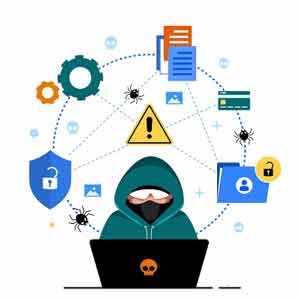The Importance of Online Safety for Employees
As we move towards a more digital and interconnected world, the safety and security of employees online become increasingly important. Cybercriminals and hackers are constantly developing new and more sophisticated techniques to gain unauthorized access to personal and sensitive data. This can lead to serious business consequences, including data breaches, financial loss, and reputational damage.
In addition, the COVID-19 pandemic has accelerated the trend towards remote work, making it more challenging for businesses to monitor and secure employee devices and networks. Businesses must take steps to educate employees on online safety and implement robust security measures to protect their data and networks.

Best Practices for Employee Online Safety
- Implement Strong Password Policies
Password management is one of the most basic but crucial steps towards securing your employees’ online presence. Employees should be encouraged to use strong and unique passwords for every account and device. Implementing a password manager tool can help employees create and remember complex passwords, reducing the risk of password-related breaches.
- Use Multi-Factor Authentication (MFA)
Multi-factor authentication (MFA) provides an additional layer of security to protect against unauthorized access to employee accounts. MFA requires employees to provide additional information, such as a fingerprint or a one-time code sent to their phone, to confirm their identity when logging in to an account. This makes it more difficult for hackers to access employee accounts, even if they have obtained login credentials.
- Educate Employees on Phishing and Social Engineering
Phishing and social engineering are common techniques used by hackers to gain access to employee data and networks. Employees should be educated on how to recognize and avoid suspicious emails and messages and should be trained on how to report such incidents to their IT team.
- Use Secure Network Connections
Employees working remotely should be encouraged to use secure and encrypted network connections, such as a virtual private network (VPN). This helps to protect against unauthorized access to employee devices and networks, particularly when using public Wi-Fi networks.
- Keep Software and Systems Up to Date
Outdated software and systems can contain vulnerabilities that hackers can exploit. Businesses should implement a patch management strategy to ensure that all software and systems are updated with the latest security updates and fixes.
- Conduct Regular Security Awareness Training
Regular security awareness training is essential to ensure that employees know the latest online threats and how to avoid them. Training should cover password management, phishing, social engineering, and secure network connections.
Conclusion
In today’s digital age, ensuring the safety and security of employees online is a top priority for businesses. By implementing strong password policies, using multi-factor authentication, educating employees on phishing and social engineering, using secure network connections, keeping software and systems up to date, and conducting regular security awareness training, businesses can help protect their employees and networks from online threats. By following these best practices, businesses can create a more secure and resilient online environment for their employees.


